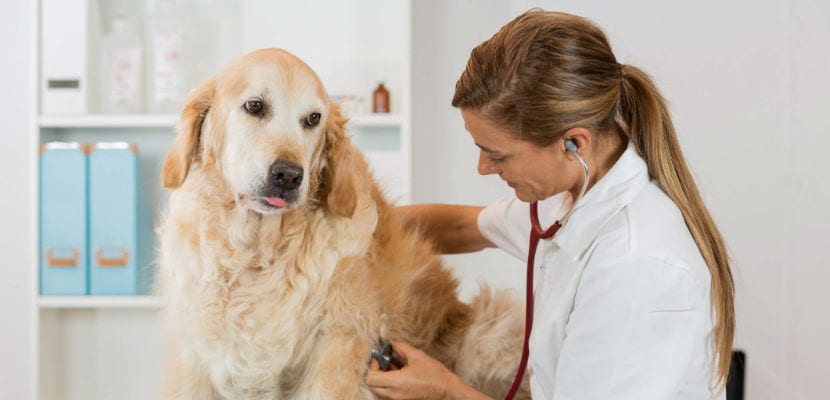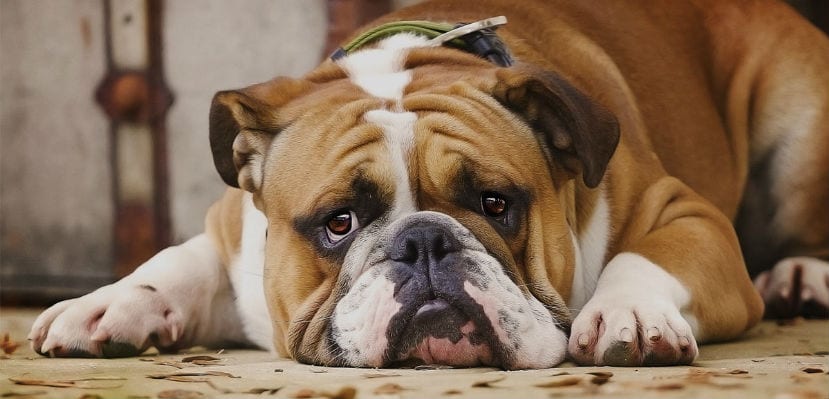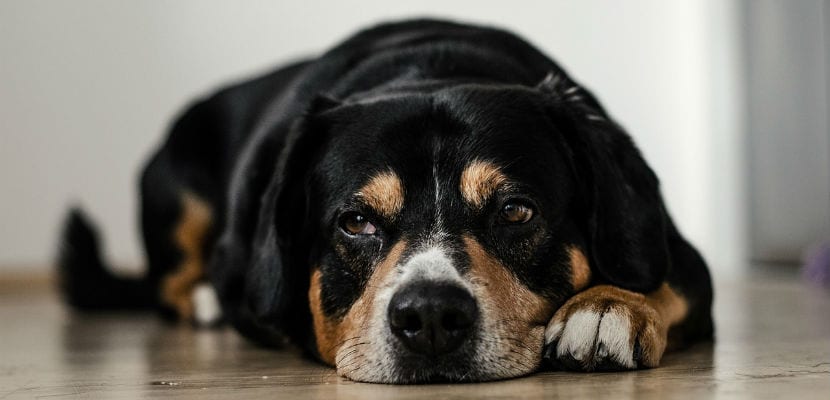
Torsion of the stomach or gastric torsion is an extremely serious disease It affects dogs of any size, although large breeds are more prone to it. It requires immediate veterinary treatment.
What is stomach twisting?
In simple terms, it is about a kind of "strangulation" of the stomach itself, which due to the weakness of its ligaments, turns on itself. When this happens, the dog cannot discard the contents of the stomach, so it puts a strong pressure on the other organs.
As a result, the arteries, veins and blood vessels of the digestive system are compressed, so blood circulation is interrupted. This causes the functioning of some organs to begin to fail, which can lead to the dog's death.
Main causes
The exact causes of stomach torsion are unknown.Although experts say that large breed dogs are more likely to suffer from it, such as the Great Dane, the German Shepherd or the Boxer. Deep-chested dogs, such as the poodle or the weimaraner, are also more likely.
Veterinarians also suspect that some habits can favor the appearance of this problem. As an example, we can name the following:
- Excessive intake of food or water: When a dog eats or drinks excessively and continuously, it promotes gastric torsion. This habit causes the accumulation of gases in the stomach, which gives rise to this disorder.
- Genetic cause. Specialists are studying this possibility. Dogs with a family history are likely to be more prone to this disease.
- Stress and / or anxiety. Stomach twisting occurs more frequently in dogs that are under high stress.
In any case, as we said before, there is no scientific evidence on these causes. Veterinarians are currently studying various hypotheses, including the one that relates this disease to hormonal imbalances.

Symptom
The symptoms of stomach torsion are numerous and serious. If they are not treated in time, they can be lethal for the animal, so you have to go to the vet at the slightest sign. Some of the most frequent symptoms are:
- Bloating and abdominal pain.
- Breathing difficulties
- Nausea and vomiting.
- Diarrhea.
- Weakness and apathy.
- Excessive salivation
- Lack of appetite
- Acceleration of the heart rate.
- Nervousness.
Transmission
Gastric torsion needs urgent veterinary treatment. Once the specialist has confirmed the diagnosis (an X-ray is necessary for this), they will administer antibiotics and other drugs intravenously. Afterwards, an operation will be performed.
Surgery is essential in this case. To do this, the dog is completely anesthetized and, with the use of an orogastric tube, your stomach is decompressed and an internal wash is done. After that, the stomach is fixed to the costal wall to prevent it from happening again; This procedure is called a gastropexy.
Recovery depends on the state of the disease. If it is too advanced, the chances of mortality are high even after surgery has been performed. In general, dogs that exceed 48 hours after the operation come out ahead.

Measures to prevent it
We can take some measures to reduce risk that our pet suffers from this disease.
1. Distribute the daily food ration. It is best to divide the amount of food for a full day into three doses: breakfast, lunch and dinner. This makes digestion easier.
2. Rest after eating. Let's wait at least half an hour after your meal to walk around. And in no case should we force the dog to perform intense physical exercise just before or after eating.
3. Avoid abrupt drinking. Sometimes dogs quench their thirst by drinking too much water at once, which favors the onset of this disease. If we notice this behavior, we will have to ensure that he drinks little by little, withdrawing the water for a few minutes to offer it again later.
4. Special dishes. If our dog eats very quickly, it is best to buy special dishes to slow down the process. These are containers that include small irregularities inside, so that the animal is forced to eat more slowly.
5. Reduce stress. The mood of our dog is vital to its health. Moderate exercise, frequent games, affection and silence will help you avoid stress, and with it, diseases.